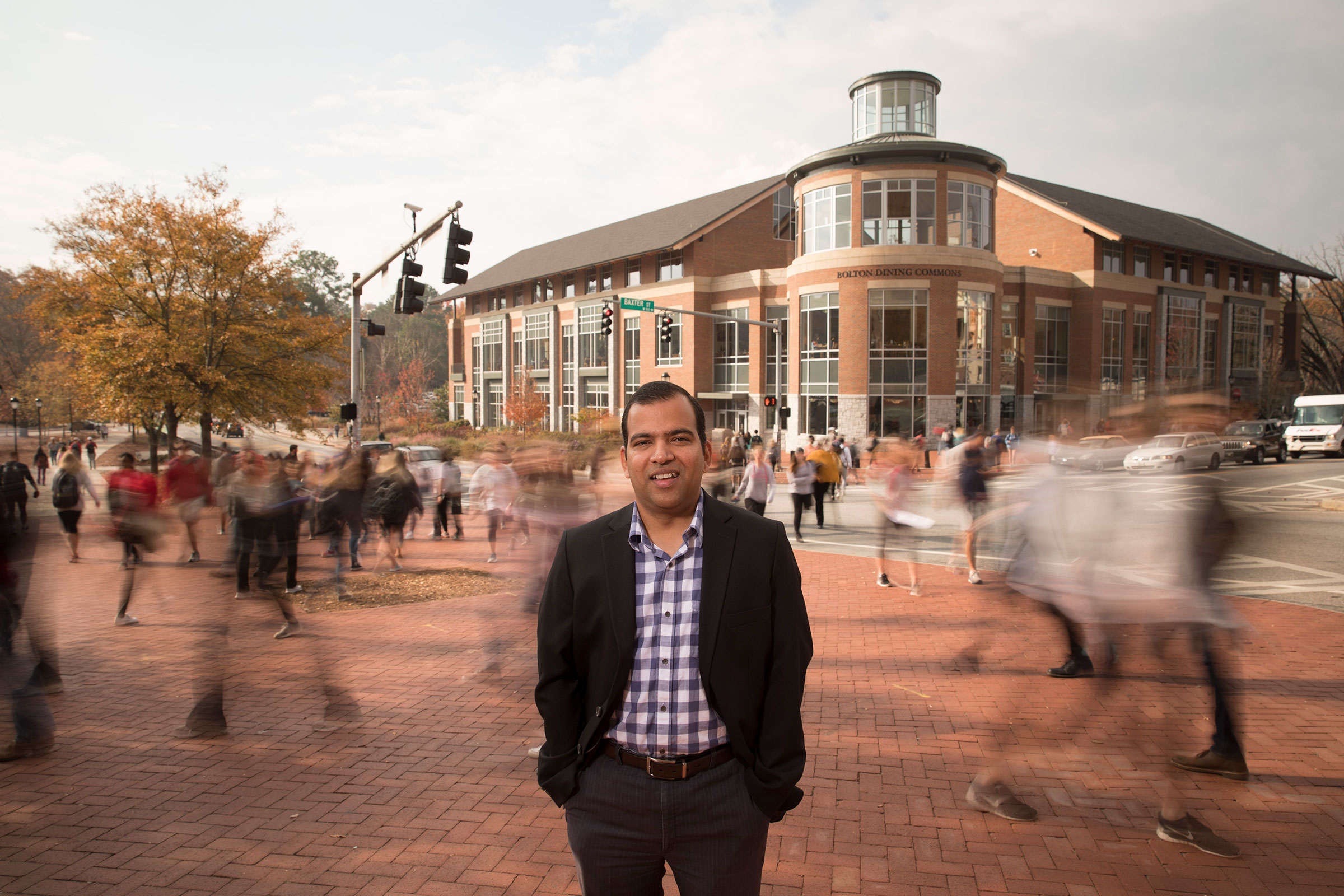Investing in the Future of Data Science and AI
The University of Georgia is investing in the future of data science and artificial intelligence through an ambitious Presidential Interdisciplinary Faculty Hiring Initiative. By FY25, 70 newly recruited faculty will join an institution whose research activity and impact have grown dramatically in recent years.
Rather than being housed exclusively in a single department, the majority of UGA’s newly recruited faculty will focus on the fusion of data science and AI in crosscutting areas such as infectious diseases, integrative precision agriculture, ethics, health, cybersecurity, community resilience and the environment. Faculty will collaborate through existing interdisciplinary units such as the Institute for Artificial Intelligence, Institute of Bioinformatics, and the Center for the Ecology of Infectious Diseases, as well as new ones.

Jessica Kissinger
Distinguished Research Professor, Department of Genetics and Institute of Bioinformatics
Kissinger is a driving force behind the development of databases that contain vast amounts of biological information and reveal important patterns that pave the way for new treatments for diseases such as malaria. She and her colleagues have been continuously funded since 1999, most recently with a $23 million National Institutes of Health award to maintain the Eukaryotic Pathogen Database (EuPathDB), which receives more than 6.5 million hits in more than 100 countries each month.
WenZhan Song
Georgia Power Mickey A. Brown Professor and Director, Center for Cyber-Physical Systems
Song applies networked sensing and computing to health, energy and environmental monitoring. His innovations include a contact-free sensor system known as BedDot, which uses vibration sensing to continuously monitor a person’s heart rate, respiration rate, sleep movements and sleep posture. Designed to improve care for the elderly, BedDot generates real-time alerts to loved ones or caregivers when urgent changes—such as falls from a bed—occur.


Deepak Mishra
Professor of Geography
Funded by a grant from the National Science Foundation’s Smart and Connected Community Program, Mishra is leveraging big data to develop a new dynamic heat exposure index that identifies areas of heat hazard in cities and towns. The index’s real-time updates help policymakers make critical decisions in risk communication and urban planning. Policymakers can leverage information provided by Mishra’s index to develop new construction plans and mitigate heat in previously constructed areas by planting grass and introducing fans and misting stations for large events.


